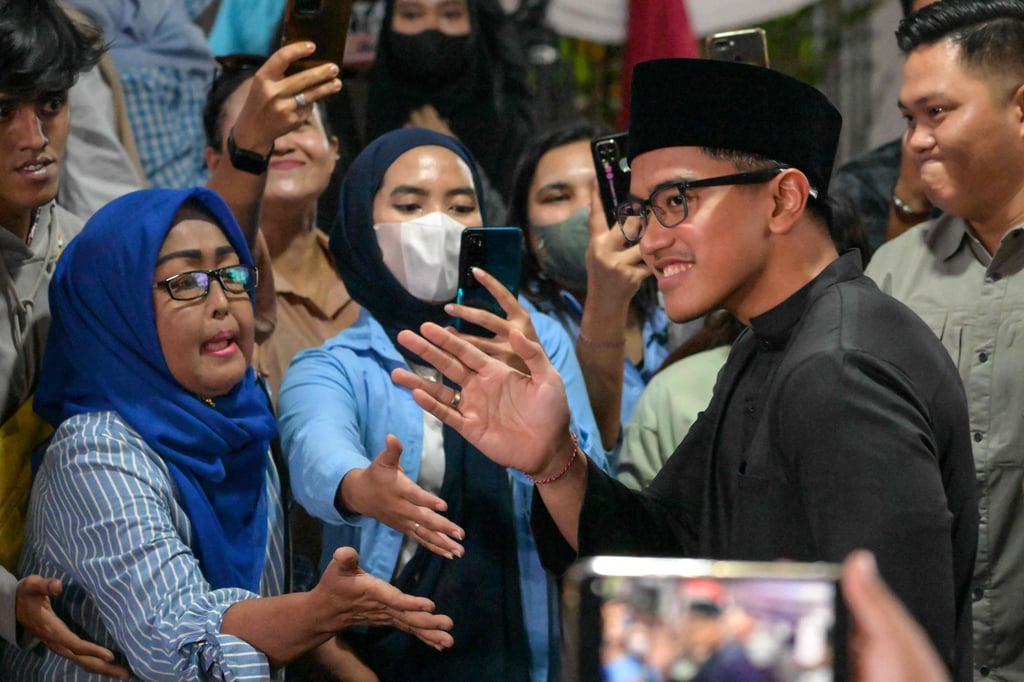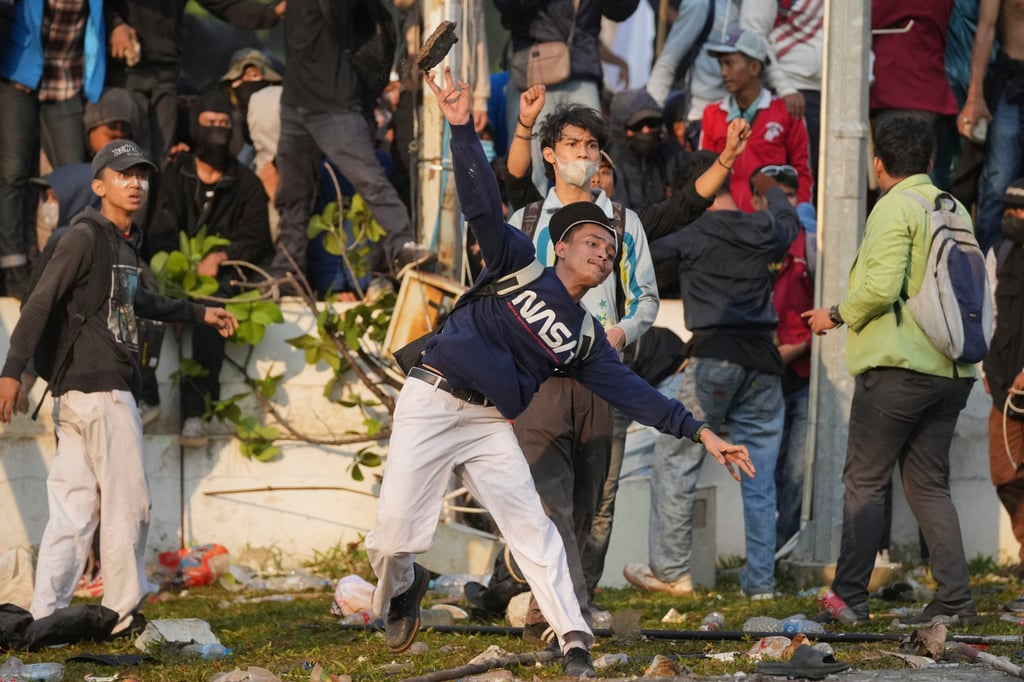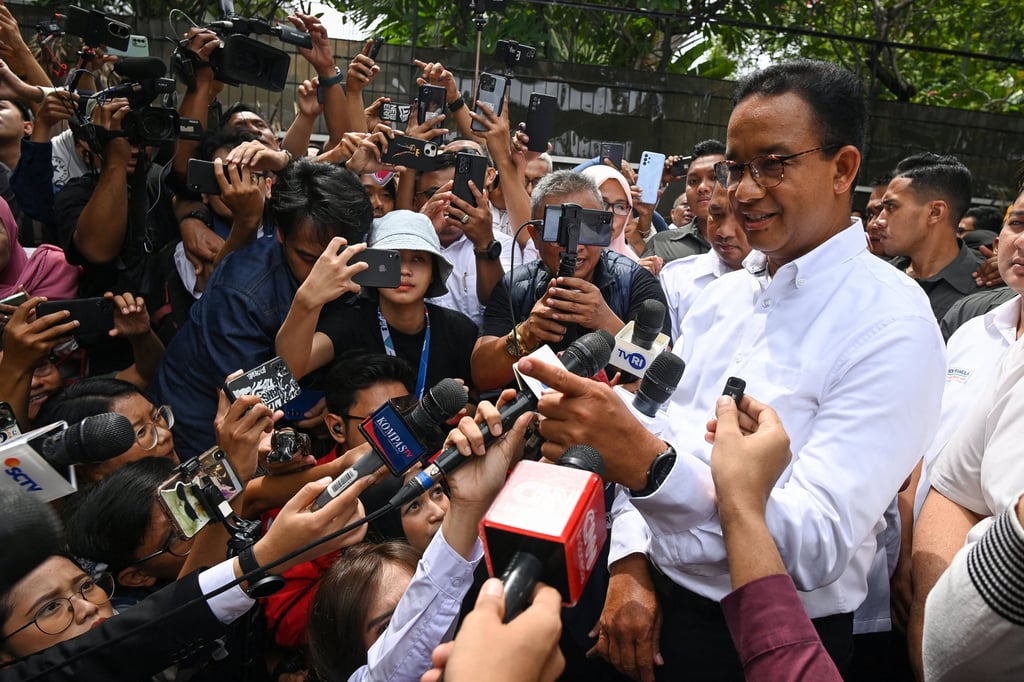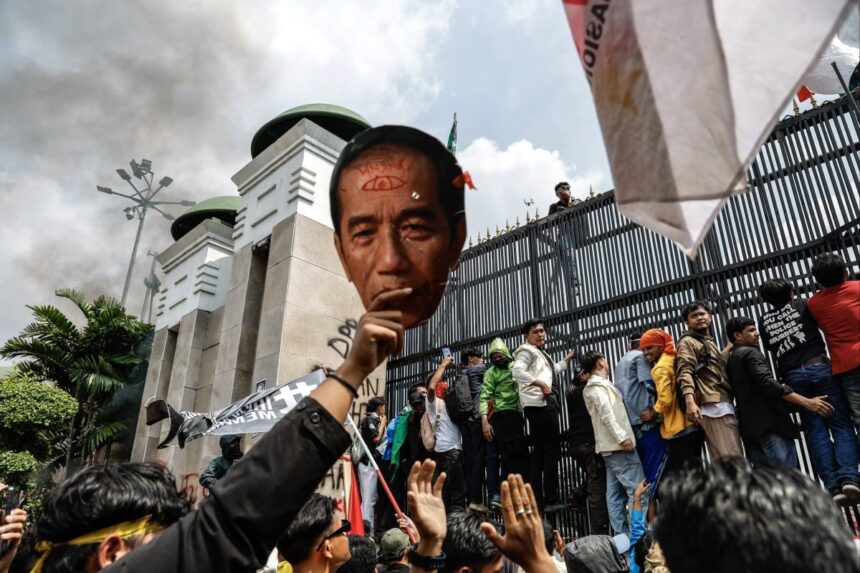Summary by Geopolist | Istanbul Center for Geopolitics:
This article delves into the latest political developments in Indonesia, with a focus on President Joko Widodo’s efforts to strengthen his position and establish a familial political legacy. The emphasis is placed on Widodo’s alliance with Prabowo Subianto, his endorsement of his son Gibran Rakabuming Raka as a vice-presidential candidate, and his endorsement of his junior son Kaesang Pangarep for a gubernatorial position in Central Java.
The article also describes how these actions have been contested by the Indonesian Constitutional Court, which has prohibited the reduction of age restrictions for gubernatorial candidates. Widodo’s plans have been disrupted as a result of the court’s actions, which have been met with protests and political backlash. The article concludes by extrapolating on the uncertain political landscape in Jakarta and potential future conflicts between Widodo and the Constitutional Court.
Read the full article below.
Will Indonesia’s democracy and judiciary retreat further after Widodo’s exit?
This has been marked by attacks on – and direct interventions in – the anti-corruption commission and the Constitutional Court. Both were formerly key government watchdog institutions. It has also involved intimidating and weakening the civil society organisations that helped deliver democratisation to Indonesia after the fall of former dictator Suharto in 1998.
Widodo’s vice-president son
These efforts started earlier this year in the lead-up to Indonesia’s presidential election.
Abandoning the party that had backed his rise to power, the Indonesian Democratic Party of Struggle (PDI-P), Widodo threw his weight behind Prabowo by offering up one of his sons, Gibran Rakabuming Raka, as Prabowo’s vice-presidential candidate.
To achieve this, Widodo had to rely on his brother-in-law, Anwar Usman, who was chief justice of the Constitutional Court. In a blatantly nepotistic decision, a majority of the court helped Gibran bypass the 40-year minimum age limit for vice-presidential candidates.
Usman was removed as chief justice for unethical conduct, but the decision stood. Prabowo and Gibran won in a landslide.
Widodo and Prabowo’s new alliance, the Advance Indonesia Coalition or KIM, soon became known as KIM-Plus as former political opponents quickly moved to secure a place in the new administration.
Widodo also seems to have secured a new political base to replace PDI-P. In what some have likened to a “coup”, Airlangga Hartarto, leader of the second-biggest party, Golkar, was accused of corruption and resigned. He was swiftly replaced by a Widodo loyalist, Bahlil Lahadalia.
Another son and ally running for governor
In recent weeks, Widodo’s ambitions to maintain influence have focused on the regional elections on November 27 and the opportunity to install two KIM-Plus candidates in key gubernatorial positions.
The first is Widodo ally Ridwan Kamil, former governor of West Java. Widodo backed him to become Jakarta’s next governor, anticipating this would prevent the re-election of Anies Baswaden, one of Widodo’s political enemies and critics.
The second is Widodo’s youngest son, Kaesang Pangarep, who the outgoing president was backing to be the next governor of Central Java.
Like his brother Gibran, however, the 29-year-old Kaesang faced an age-based roadblock. Kaeseng was barred from running due to an election law that requires gubernatorial candidates to be at least 30.

But once again, a favourable but questionable judicial decision – this time from the Supreme Court – seemed to clear the path for him.
The Supreme Court decided in May that candidates must be 30 at the time of inauguration. This enabled Kaesang to run, given that, if elected, his inauguration would occur after his 30th birthday.
Constitutional Court weighs in
And then things suddenly came unstuck. The Constitutional Court, which many feel has become cowed and compliant under Widodo’s rule, handed down two decisions on August 20 that blew up his plans.
In a unanimous decision, the court emphasised the minimum age for gubernatorial candidates applied at the time of nomination as candidate, not the time of inauguration. The court also suggested it might invalidate an election in which an underage candidate ran for office.
In another decision, the court drastically reduced the so-called nomination threshold parties require to put forward candidates for gubernatorial elections.
Under the current electoral law, a political party – whether itself or in coalition with other parties – needed to have either 20 per cent of seats or 25 per cent of total votes in a provincial parliament to field a candidate for governor.
The court reduced this threshold for parties to that of independent candidates. The result is that a party will only need 7.5 per cent of the votes to nominate in Jakarta.

This change matters a lot. It will allow the PDI-P, headed by former President Megawati Soekarnoputri, to nominate a candidate for governor of Jakarta to run against Widodo’s pick, Ridwan.
And she had been expected to back Widodo’s rival, Anies.
Proposed law sparks street protests
These decisions led to a quick response. The national legislature (DPR), dominated by Widodo’s coalition and led by a Widodo loyalist, Deputy Speaker Sufmi Dasco Ahmad, defiantly announced it would immediately pass a new electoral law.
This would have reversed the effect of the Constitutional Court decisions in two ways:
First, it would reset the nomination threshold to 20 per cent, which would have blocked PDI-P from nominating a candidate against Ridwan;
Second, it would set a new age limit of 25 for gubernatorial candidates, enabling Kaesang to run.
The legislature planned to do this, even though Constitutional Court decisions are, by law, “final and binding”.
This contemptuous treatment of the court and Widodo’s blatant dynastic ambitions triggered a massive response from civil society, which, like the court, had seemed weakened in recent years.

Protesters in Jakarta besieged the DPR, tearing off gates to the legislative complex. Demonstrators holding banners that read “Emergency Warning” and “Democratic Emergency” soon erupted in other cities.
There have certainly been bigger demonstrations in the past against the Widodo administration’s policies, but, critically, these were enough to stop lawmakers from entering the DPR and forming a quorum.
Dasco eventually announced the new law would be abandoned – for now. Kaesang then announced he would not run for governor of Central Java.
As expected, it was soon reported the PDI-P would nominate a candidate for governor of Jakarta. It is still unclear at the time of writing if Megawati will choose Anies or a member of her party, but either way, Widodo now can’t be sure his candidate, Ridwan, will win.
What happens next?
Widodo has suffered a setback in his efforts to consolidate his power – and public humiliation, as well. But he remains a formidable political force and, when the time is right, he will want to respond to these challenges.
A likely target is the Constitutional Court itself. It acted with integrity and courage to defy the dominant political elite. But for years, it has been the target of an incremental campaign to undermine its independence through pressure on judges and legislative amendments.
The DPR now has before it a bill to amend the Constitutional Court law. It would not be surprising if this bill makes it easier for the government to remove judges, undermining its independence even further.
Moreover, while civil society groups rallied so effectively to stymie Widodo’s dynastic ambitions, past experience suggests they are unlikely to maintain the momentum necessary to prevent the bill’s passage.
If that happens, those recent dramatic decisions may well be the court’s last gasp.
Source: South China Morning Post







